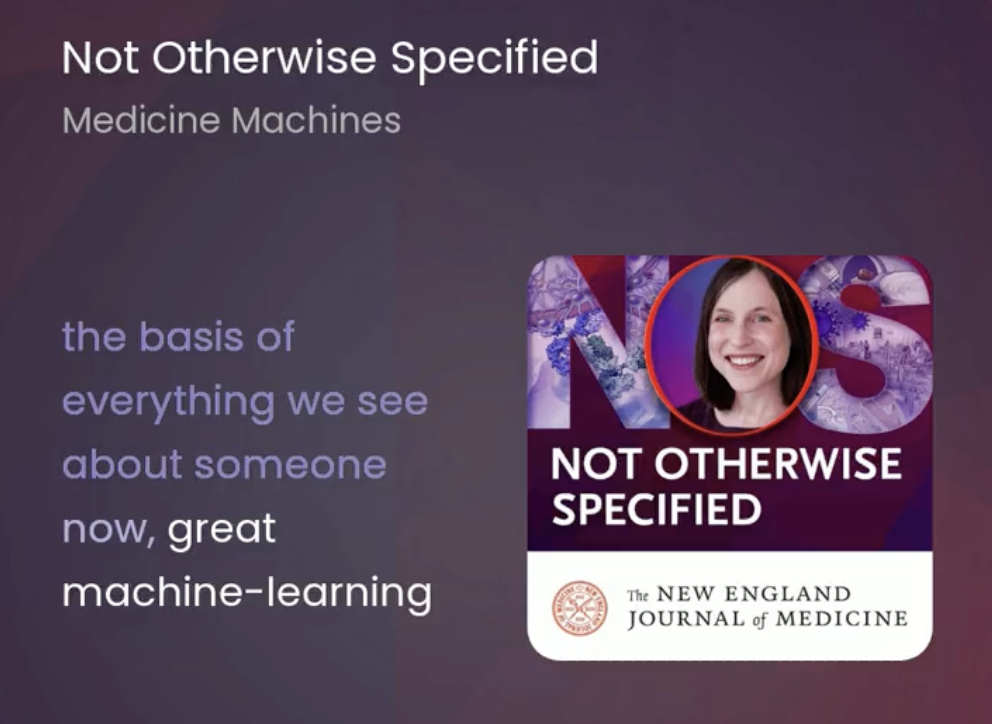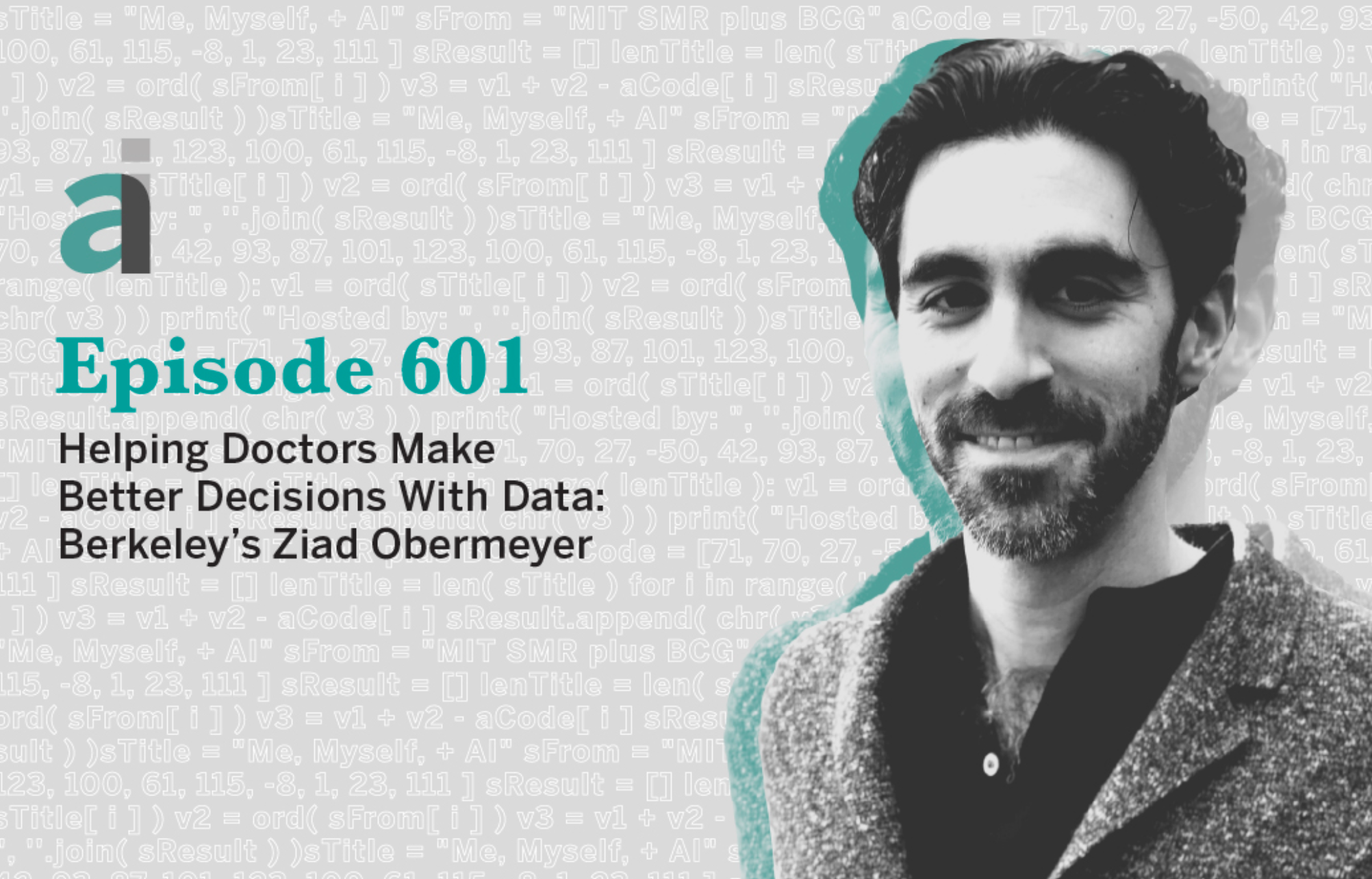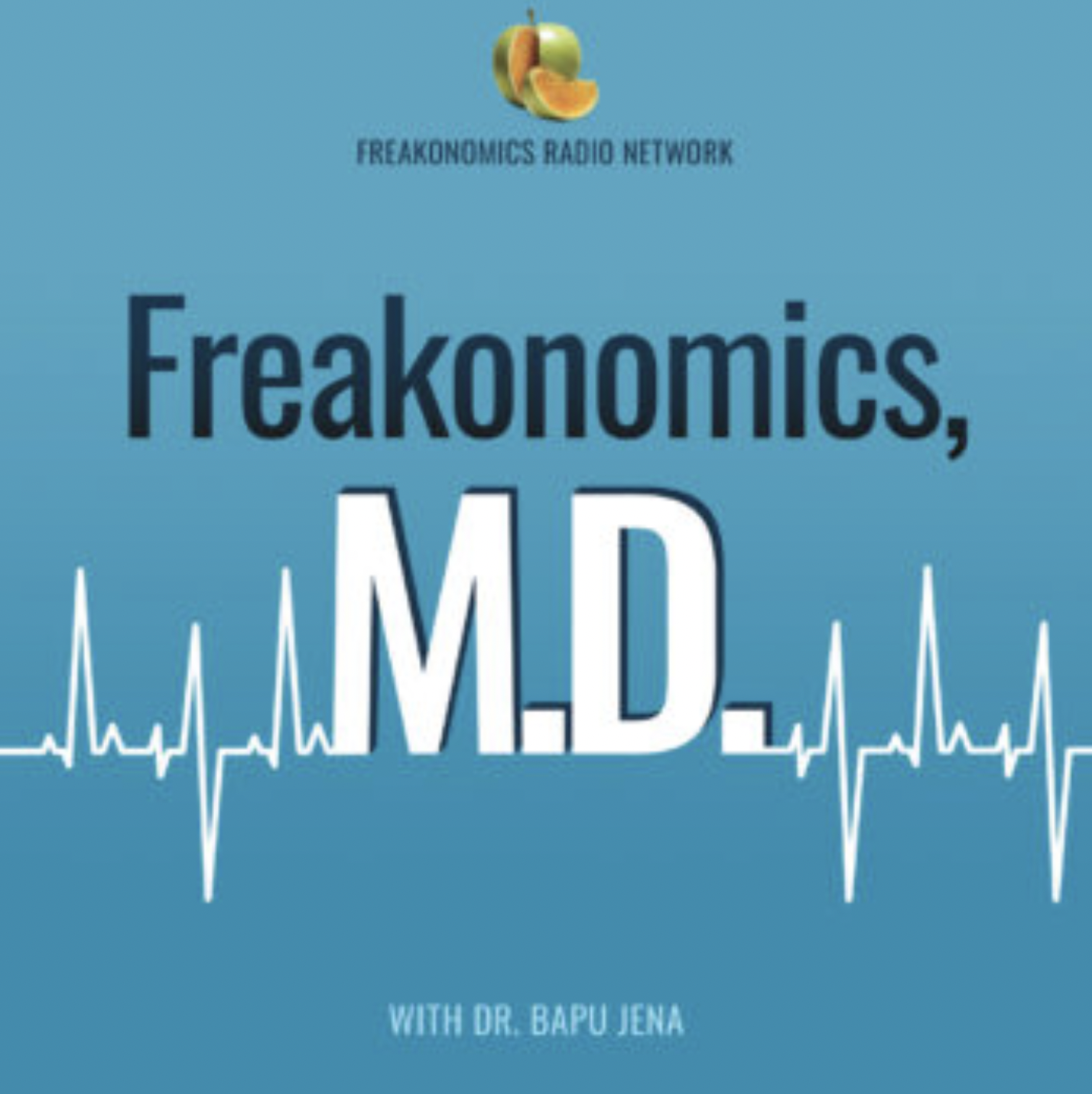Ziad Obermeyer testified to the US Senate Finance Committee on the potential hazards of applying AI to medicine, encouraging the adoption of guardrails like independent algorithm evaluation to address issues like racial bias. Read more about the testimony in this Berkeley News article.
Ziad Obermeyer in NEJM's "Not Otherwise Specified" Podcast
In a recent episode of “Not Otherwise Specified,” a podcast hosted by the New England Journal of Medicine, Ziad Obermeyer explains how machine-learning techniques can aid in establishing a diagnosis and can be a beneficial tool for predictive medicine. Listen to the episode here.
Ziad Obermeyer on "Me, Myself, and AI"
In a recent episode of “Me, Myself, and AI,” a podcast from MIT’s Sloan School of Management, Ziad Obermeyer discusses his research on algorithmic bias and the use of artificial intelligence and machine learning in predictive analytics in health care. Listen to the episode here.
Ziad Obermeyer on Artificial Intelligence in Medicine
Ziad Obermeyer was recently featured on an episode of Freakonomics MD, in which he shared new research finding that artificial intelligence may be better equipped to predict heart attack risk than doctors. Still, Obermeyer emphasizes shortcomings – noting that many Ai algorithms have been proven to exhibit significant racial biases. Read more here.
Ziad Obermeyer on High-Quality Healthcare Data
Nightingale Open Science, cofounded by affiliate Ziad Obermeyer, aims to connect researchers with high-quality medical data in order to improve the use of artificial intelligence in healthcare. A recent piece in WIRED highlights the importance of these efforts, in the face of biased algorithms resulting from skewed datasets. Read more here.
Labor Science in Healthcare and Education Research
This virtual presentation series assembles researchers in healthcare and education policy to present work from the Opportunity Lab’s Labor Science Initiative, providing the opportunity for researchers to exchange insights from exploring issues of inequality and opportunity using new data science tools.







